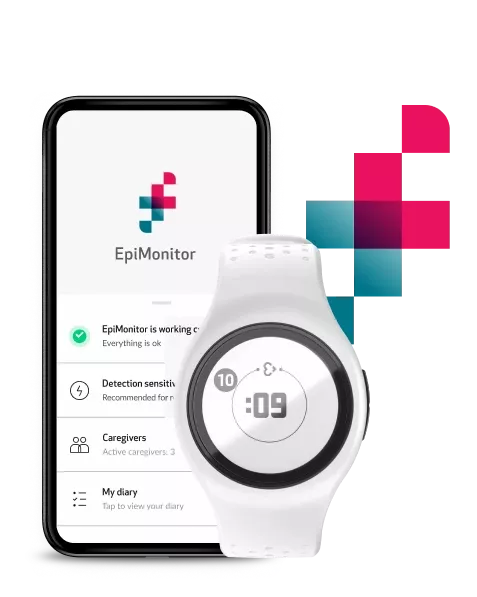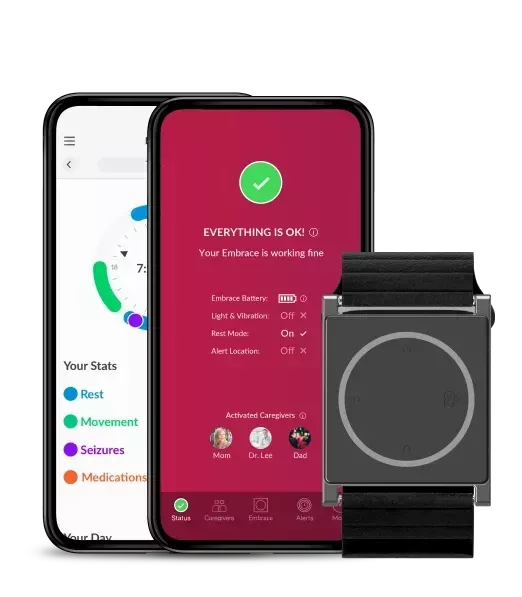Can people with epilepsy get tattoos?

Over the last 30 years tattoos have grown rapidly in popularity. According to the US think tank, The Pew Research Center, 32% of American adults have at least one tattoo. However, only 0.4% appear concerned about the risks of getting a tattoo. This covers people across all demographics from hip hop stars to members of the U.S Senate. Yet, tattoos and epilepsy remain an under-discussed and ill-informed topic.
Epilepsy, a neurological condition marked by sudden changes in brain activity leading to seizures, affects individuals of all ages. Anecdotal evidence across various social platforms provides contrasting views as to the safety of tattoos for people with epilepsy.
In this article we will demystify the topic. We investigate the risks of tattoos and epilepsy and how people with epilepsy can manage those risks.
Whilst this article helps to answer all your questions about epilepsy and tattoos, it’s always best to engage a medical professional first if you are worried.
Discussing it with your loved ones and using a market leading epilepsy wearable like EpiMonitor or Embrace2 to ensure they know you are safe, can help alleviate your concerns.
Can I have a seizure getting a tattoo?
There is no medical evidence to suggest getting a tattoo can cause a seizure.
However, this does not mean that having a tattoo is completely safe. As outlined by the Mayo Clinic, the risk of epileptic seizures can be increased by fear, stress and anxiety.
It is perfectly natural for you to feel a little nervous before you get a tattoo. You may wonder if it will hurt or what it will look like in the end.
There is no direct correlation or causation between epileptic seizures and tattoos, but if you do feel anxious this could increase your risk of having a seizure.
I have epilepsy and want a tattoo. What should I do to ensure I am safe?
Make sure that you choose a reputable tattoo parlor. Selecting someone you trust may help you feel more at ease. This could help to reduce feelings of fear, stress or anxiety, which all contribute to an increased chance of a seizure occurring.
Ask them the following questions:
- Who is the tattoo artist? Choose a studio with trained staff and check local tattooing rules. Don't let untrained individuals or DIY kits tattoo you.
- Is the equipment sanitary? Confirm sealed needles, tubes, and single-use ink cups. All equipment should be new or properly sterilized.
- Does the artist wear gloves? Ensure the artist wears fresh disposable gloves and washes hands for each tattoo.
- Is reusable equipment sterilized? Check for an autoclave machine to heat-sterilize reusable tools. The tattoo artists should disinfect other items after each use, including tables and handles.
Once you have selected the tattoo studio, you should consider taking the following steps if you have epilepsy:
- If you feel comfortable, let the tattoo studio know about your epilepsy before your appointment. Let them know of any special precautions they should take and how to maintain your safety during the tattoo.
- Consult a loved one. Tell them about your appointment and if possible, ask them to come along if you find that reassuring.
- You could consider wearing a seizure watch. At Empatica we offer EpiMonitor for those in the US and Embrace2 for those outside the US.
What is an epilepsy wearable and how can it help during a tattoo?
An epilepsy wearable is worn by a person with epilepsy and sends alerts to a caregiver or loved one in the event of a seizure. As a result, it means that a quick response can be provided as the caregiver or loved one can call for medical assistance or arrive quickly to provide support themselves. This makes it ideal to have when you are going for a tattoo. Tattoos can be painful and increase the risk of anxiety. This can increase the likelihood of having a seizure.
The leading epilepsy devices on the market include Empatica’s EpiMonitor in the US and Embrace2 outside the US, detecting patterns associated with tonic-clonic seizures, alerting caregivers, and monitoring epilepsy.
EpiMonitor is FDA-cleared for ages 6 and up. As the only FDA-cleared wrist wearable for epilepsy in the U.S., it has a 98% accuracy rate, validated against hospital EEGs, ensuring safety and peace of mind. Better still, it has up to 7-days battery life and offers a user-friendly seizure diary, uncovering vital patterns in your activity, sleep, and seizures. This helps you to manage your epilepsy more effectively, which is ideal for when you go for a tattoo.
If you are not based in the US, you can buy the Embrace2. It’s the world’s first FDA-cleared wrist wearable for epilepsy, revolutionizing safety by detecting patterns associated with possible convulsive seizures and alerting caregivers, even from miles away. It's designed for constant comfort, ensuring people with epilepsy receive timely assistance, providing peace of mind around the clock.
How can I ease my anxiety before a tattoo?
It is important to try to reduce your stress, as that can be a contributing factor to having a seizure.
Here are some tips to help ease any anxiety you may be feeling before getting a tattoo.
Remember why you are getting the tattoo - Is it something you have wanted for a long time? Does it hold special meaning to you? Whatever the reason, try to remember the reason you wanted to get a tattoo in the first place. This might help you feel excited instead of nervous.
Consider starting small - If you are reading this, it is likely to be your first tattoo. You might want to start with something small to see how you find the whole process.
Make sure the tattoo artist knows how you are feeling - Tell them how you feel. They are the experts and may have some techniques to help you feel at ease during your appointment.
Practice relaxation techniques - Leading up to your appointment, it is important to try to reduce your stress and to get lots of sleep, especially if you have epilepsy. The Sleep Foundation has lots of relaxation exercises designed to help you sleep.
Is there anything else I should know?
Although not directly related to having epilepsy, there are some other factors to bear in mind if you are considering a tattoo and have a medical condition or require an examination such as an MRI.
MRI skin reactions: Experiencing skin reactions during an MRI, though uncommon, can lead to red rashes and inflammation on tattooed skin. MRI, or magnetic resonance imaging, utilizes radio waves and magnets to visualize internal body parts. Skin burns, particularly first or second degree, are potential outcomes. Postponing new tattoos before an expected MRI may be wise. Informing your doctor about tattoos is crucial, and the magnetic properties of red ink may heighten reactions during MRIs.
Other medical conditions: Whilst epilepsy and tattoos are generally considered safe, you may still want to talk to a medical professional before you have a tattoo. This might be especially beneficial if you live with another condition.
Doctors caution that individuals with a weakened immune system may face complications if they decide to get a tattoo. Moreover, people who are pregnant, breastfeeding, live with chronic skin conditions and blood disorders should also tread carefully before having a tattoo. Furthermore, diabetes specialists warn you should avoid tattooing certain parts of the body including where there is poor circulation and where you inject insulin. Therefore, book an appointment with your doctor before taking a tattoo.
Do not let your epilepsy hold you back
Remember that getting a tattoo does not pose any direct risks to those living with epilepsy. It does not cause seizures.
You should always be mindful of other potential issues like allergies, infections, and scarring.
If you are feeling anxious or nervous about the process, be aware that your likelihood of having a seizure may increase. It is crucial to do research before you have a tattoo and go to a reputable tattoo studio.
Still want to get a tattoo? Then go for it! You do not have to let your epilepsy hold you back.


